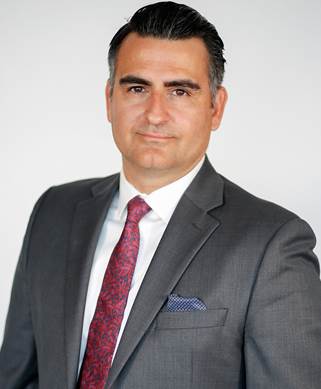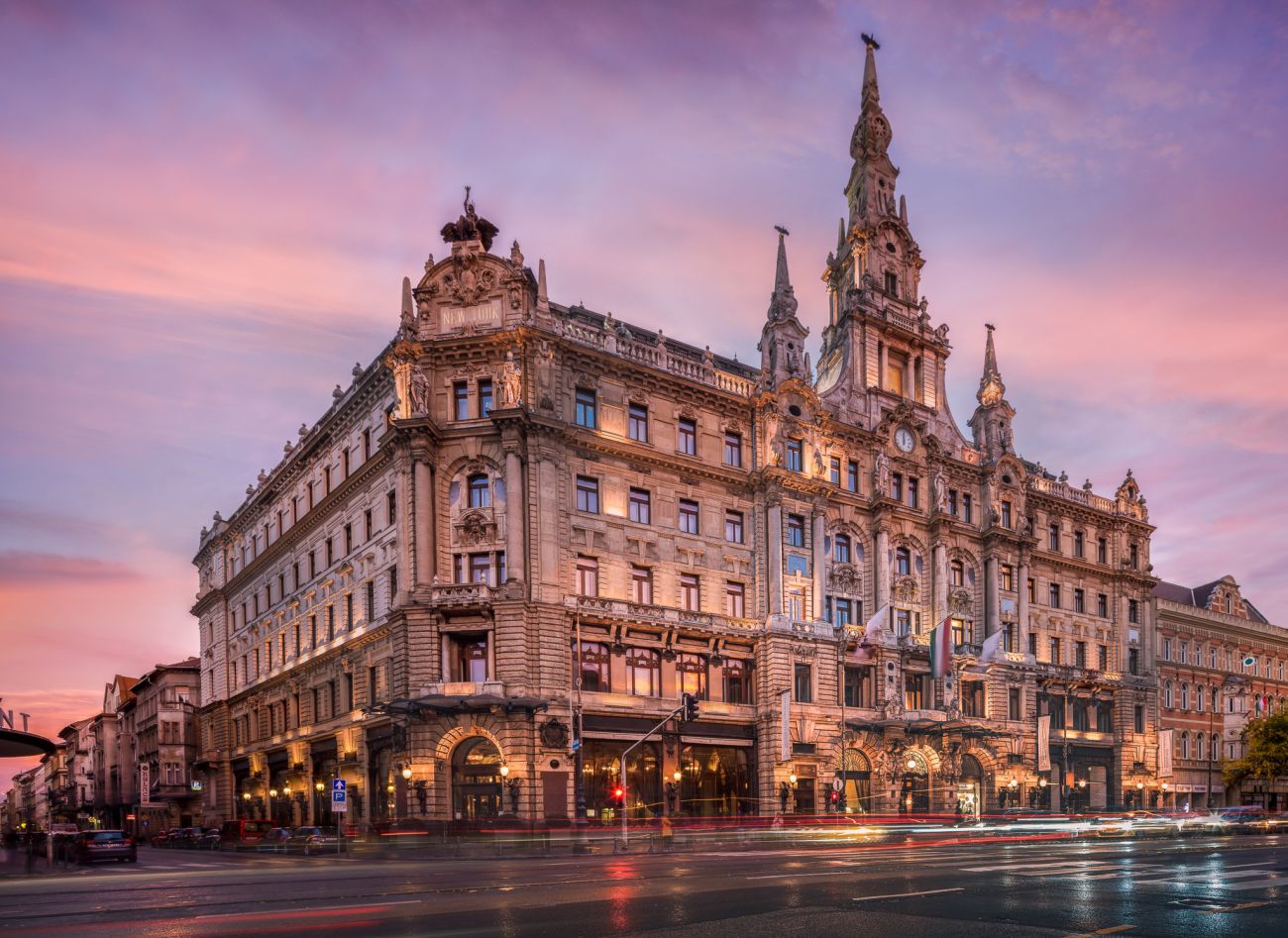Catégorie : Monde - Économie du secteur
- Interviews et portraits
- Ouvertures d'hôtels - Projets hôteliers vRénovation ou nouveauté dans un établissement - Interviews - Les Leaders du secteur
Interview de Vanessa Guerrier-Buisine le 26-01-2024
 Ian Di tullio, global Chief Commercial Officer, Minor Hotels
Crédit photo © Minor Hotels Appointed last June as global Chief Commercial Officer of Minor Hotels, Ian Di Tullio brings with him unique expertise. The man who took part in the major transformation of the Accor loyalty programme, and who also got the customer engagement of major airlines off the ground, is now embracing Minor's growth ambitions with undisguised enthusiasm. The CCO will play a key role in this strategy, as the group has just announced growth targets of 40% for its portfolio, aiming for a quota of 80,000 rooms. To meet the challenge of opening 200 hotels in the next three years, Ian Di Tullio will be focusing more strongly on a mix of management contracts and franchises. It was on the Minor Hotels stand at the ILTM trade show in Cannes that we met the Quebecker with the unfailing smile. For the Journal des Palaces, the Global CCO agreed to discuss the direction he will be taking in his new mission. Could you outline your career path?For as long as I can remember, I have had an odd fascination with numbers and creativity. While I picked finance as my sector of studies, I soon realized that it was the less restrictive areas of data science, consumer behaviour and marketing that truly intrigued and interested me. This led me to rapidly pivoting in the early 2000s to the then little-known work domains of database marketing, loyalty and CRM; sectors that were just starting to be picked up major steam with the rise of major loyalty programs and the internet.
I spent several years honing these skills by designing and managing some of the biggest loyalty programs in Canada and the United States. I enjoyed managing increasingly large teams with a data-driven mindset, so much so that I completed a PhD in data mining and machine learning. Equipped with strong technical, management and leading-edge academic knowledge, I was able to apply these skills to the next chapter of my career in aviation. I took responsibility for customer engagement at Air Canada and Qatar Airways, driving the creation of industry-leading loyalty, digital, and customer experience capabilities.
Each of these experiences continued building my bundle of skills that finally led me to the adjacent sector of hospitality with Accor. At Accor, I led the commercial operations team for Europe & North Africa, overseeing a portfolio of nearly 3,000 hotels ranging from economy to luxury and management to franchise operating models.
Armed with this combined strategic and operational skill set, I joined Minor in early 2023 as Global CCO with the privilege of managing the exciting areas of Brand, Marketing, Digital, Global Sales, Loyalty, Marketing, PR and Revenue & Distribution across the group. Minor operates more than 540 hotels in 56 countries (but interestingly owns or leases 70% of its network, making every decision just so much more impactful).How would you define luxury hospitality?Luxury hospitality is increasingly defined by its lack of definition. The word ‘luxury’ is often highly subjective, culturally influenced, and in many cases is highly contextual. For example, if I’m on a vacation with my family, a luxury experience might involve a private boat journey to one of Asia’s last pristine wilderness areas. If I’m on a business trip, however, and arriving in a new city late at night, the ability to bypass the check-in desk and go straight to my room, while being offered a suite upgrade digitally for my loyalty is the ultimate pleasure.
So to me, luxury hospitality is the ability to recognise and understand these contextual, individual needs and respond to them in a dynamic and personal way. It is ephemeral, dynamic, and ceaselessly evolving - for many guests it’s no longer about pure indulgence, but about adventure, experience, and responsibility.
In this hyper-segmented consumer context, it’s also imperative for luxury hospitality brands to have a very clear, well-defined concept of their place and purpose in the world – a meaningful point of view, expressed sincerely and consistently. It’s no longer about physical product or even mere experiences; it’s about crafting memories that are profoundly meaningful for guests, and this includes a natively embedded sustainability dimension.What objectives were given to you when you were appointed Chief Commercial Officer for Minor Hotels?Minor Hotels has more than doubled its hotel inventory in the past five years, and has reported several consecutive quarters of record profitability, yet there remains a sizeable appetite and ambition for global growth. Starting with this strong foundation and ambition in mind, my first priority has been reviewing our entire brand portfolio – from our corporate brand Minor Hotels to our hotel brands: Anantara, Avani, NH Collection, NH Hotels, nhow, Elewana Collection and Oaks, we examined the demand spaces of each brand relative to the market, assessed gaps and opportunities and ultimately defined a clear positioning and proposition plan for existing and potentially new brands.
This brand portfolio and strategy review was a crucial first step in enabling the sustained acceleration of our development plans. To capitalize on our strengthened brand portfolio, we are also redesigning our digital strategy and assets to ensure not only an experiential consistency between our physical and digital delivery, but also to derive much greater brand awareness, new and repeat demand via increasingly immersive brand channels and impactful distribution solution.
This redesign is meant to achieve a more engaging overall experience that aligns with expectations of customer bookings through different channels, but ultimately is aimed at ensuring a more balanced and value-based distribution. Finally, I would be remiss if I didn’t underline the last principal objective, which is streamlining the group’s commercial structure, systems, and processes to access and fully leverage the power of our people across the globe from Bangkok to Madrid to create a truly global organization that recognises and leverages the best talent and expertise wherever it may be.You've worked for several major airlines, and also for Accor, developing customer loyalty, distribution and digital marketing. How are you going to use this expertise to help Minor?Accor, Air Canada and Qatar Airways are all companies that demonstrate genuine commitment to transforming their industries and challenging the status quo. Airlines are typically lower-margin businesses, which makes them very focused on pursuing high efficiency and yield optimization strategies, which is why they’ve excelled at digitalization, revenue management and loyalty.
At Accor, I had the privilege of leading the transformation of Accor Live Limitless, which reimagined the way the group approached loyalty, customer experience, digital, and distribution. At Minor, with our increasingly global scale and aggressive acquisition strategies, it is imperative to build out an integrated plan that allows the group to leapfrog many of our competition by adopting harmonized data, revenue management, digital, and distribution capabilities enabling the achievement of high-impact demand generation and retention and engagement strategies.
That presents a huge opportunity to reshape how Minor Hotels competes in the global hospitality space and delivers long-term value to guests as well as our owners and other partners. The experience I’ve gained at Accor and the major airlines will help to drive that future at Minor, though it’s important to recognise Minor is a very different company – one that has always done, and will continue to do things in its own distinct way by capitalizing on a combination of direct hotel management and ownership.What are the Group's specific features and strengths in terms of commercial development?Minor Hotels is at a very exciting stage of its growth trajectory. We currently have more than 540 hotels in the portfolio and a very strong pipeline of more than 75 properties, and this has been developed under an ‘asset right’ strategy which means we own or lease approximately 70% of that existing inventory. This puts us in a unique position amongst our global peers, and provides a very strong platform from which to accelerate our growth trajectory.
We also have eight well-established global hotel brands which we are growing rapidly into new markets. Some of our brands like NH Hotels and NH Collection have until recently been very Europe-centric, while others like Anantara and Avani have been concentrated in Asia. One of our strategic priorities is to cross-develop those brands between Europe and Asia Pacific, enabling us to cater to new market segments in those regions.
This strategy is already bearing fruit, with the upcoming opening of Anantara in Vienna in early 2024 following the opening in 2023 of Anantara properties in France, Italy, and Ireland, as well as Avani hotels in Spain, France, and Italy. Similarly, we’ve since introduced a number of NHs to China and Asia.
It's also worth noting that Minor Hotels is not only about hotels. Our acquisition of The Wolseley Hospitality Group, including its iconic The Wolseley restaurant in London’s Piccadilly, on top of our well-established spa & wellbeing, private jet and other brands means we now have a very mature ecosystem of luxury and lifestyle experiences that unlocks more diverse global development opportunities.What are the specific issues and challenges for the European market?Europe is really all about strengths and opportunities for Minor Hotels. Our European hotel business has been a particularly strong performer in 2023, achieving its highest-ever third quarter RevPAR on the back of extremely high demand for both leisure and business travel. A lot of Europe’s performance is being buoyed by the weak Euro against the US dollar, as well as the high number of outbound US flights.
For Europeans, the cost of flights is high, and interest rates are high, driving high intra-European travel. With the Chinese market also starting to return, hotels will be able to continue managing rates according to demand, understanding that service standards will remain non-negotiable.
The successful expansion of the Anantara and Avani brands, which occupy the luxury and upper-upscale space in Minor’s portfolio, into some of Europe’s top destinations is already proving successful. But with more than 70% of hotels in Europe independently owned, we see opportunities for a softer brand in the luxury space to cater to owners who want to retain some more brand autonomy while benefiting from the marketing and distribution power of a large global group.What innovations would you like to bring? What are your plans in your new role?We have an aggressive growth strategy through 2025 that is about more than just expanding our portfolio, it’s about adopting strategies that harness our scale and allow us to dictate our future. We’re focused on cross-developing our brands to create a harmonious blend of luxury and accessibility in diverse locations.
We’re also moving towards a lighter ‘asset-right model’. While we will always retain direct ownerships of key flagship assets, embracing modern trends, we’re shifting towards an increased focus on management or franchised contracts. This strategic move is set to add another 75 hotels organically to our portfolio, expanding our global footprint while retaining our strict owner-driven mindset across all management categories.
In an era where loyalty is key, our integration with the Global Hotel Alliance’s Discovery program marks a significant stride towards offering a seamless experience across like-minded brands. As we look towards the future, the development of a group-wide booking platform and a highly contextualized app is on the horizon, promising a unified and efficient booking and on-site experience for our guests.
Our focus remains on crafting a balanced distribution strategy, ensuring profitability not just in room bookings but across all services we offer, meaning we will strive to provide customers with the ability to make bookings seamlessly across all our products and services. Our story is not just about expansion; it’s about proving that scalable and profitable growth must be done in tandem with the setting of new industry-leading service and experiential standards.What advice would you give to a young person looking for a career in the luxury hospitality industry?The same advice I would give a young person looking for a career in any industry: stay curious and never stop learning. Hospitality is one of the very few careers that enables you to work across the world, exposing you constantly to new cultures, new ideas and new ways of working. Take the time to make the most of those experiences, and don’t be afraid to take unplanned detours along the way.
If we look at where the industry is today and where it’s going, strategies for marketing, e-commerce, sales, and distribution are growing far more sophisticated, meaning those with advanced knowledge and expertise will thrive. It also means a linear career path is less important than the bundles of skills you build along the way, and that means exposing yourself to the unknown, exposing yourself to uncertainty and embracing lifelong learning.
You also need to have passion for the experiences that you’re delivering. We’re in the business of bringing cultures together and making extraordinary memories – everything we do, no matter what role you’re in, should serve that ultimate goal.
 Anantara New York Palace Budapest Hotel
Crédit photo © Peter Baas / Minor Hotels
 An experience aboard the Loy River Song boat, the "Temple of Dawn"
Crédit photo © Adam Bruzzone / Minor Hotels
|





